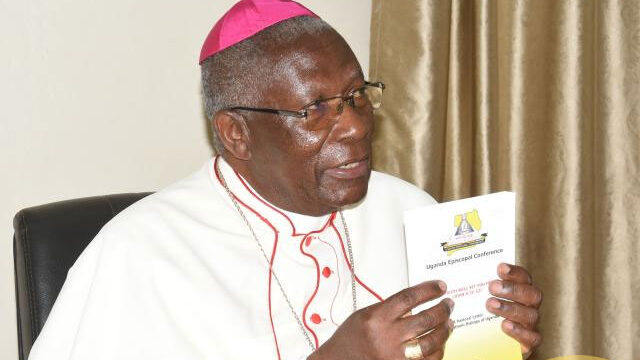
In a powerful call that harks back to their historical role at the country’s birth, Catholic bishops under the Uganda Episcopal Conference have warned that Uganda is drifting dangerously off course—politically, socially, and morally—and that silence is no longer an option.
Their message, contained in their 27th pastoral letter titled “The Truth Will Set You Free,” urges the nation to confront a growing crisis of governance, inequality, and division before it becomes irreversible.
At a press briefing unveiling the letter, Bishop Joseph Antony Zziwa, the Chairman of the Uganda Episcopal Conference, painted a sobering picture of a country at risk of repeating its darkest chapters. He outlined 12 urgent concerns that the bishops believe are eating away at the foundations of national unity and shared purpose.
“We are compelled to speak not because it is convenient, but because it is necessary,” Bishop Zziwa declared. “Uganda’s future is at stake, and the truth must be spoken with love, courage, and urgency.”
The issues raised range from political intolerance, tribalism, youth unemployment, poverty, and environmental degradation, to a broader erosion of ethical leadership and public trust.
But more than just pointing fingers, the bishops are issuing a national soul-searching call, urging citizens, particularly those in leadership, to act with integrity, humility, and service before personal interest and ambition.
This latest letter is not just another statement. It builds on a long tradition of moral guidance from Uganda’s Catholic Church, beginning with its seminal 1962 pastoral letter “Shaping Our National Destiny,” released just before Uganda’s independence. Then, as now, the bishops acted as custodians of conscience, warning of what lay ahead if leaders ignored justice, equity, and truth.
“We stand today where we stood then,” Bishop Zziwa said. “What was true in 1962 remains true now: the health of a nation is measured not just by its economic indicators, but by how it treats its people, how it governs, and how it values truth.”
The letter affirms the Church’s long-held stance that while it does not seek to govern, it cannot stay silent on matters that affect the moral and spiritual health of society. Quoting the late Archbishop Joseph Kiwanuka’s 1961 letter “Church and State: Guiding Principles,” the bishops emphasized their responsibility to speak into the moral fabric of every sphere of life—including politics.
“The Church’s mission is not limited to sacraments and worship,” Bishop Zziwa reminded the nation. “It includes the duty to pass moral judgment when fundamental human rights and the salvation of souls are at stake.”
In this sense, the pastoral letter is both a spiritual map and a social mirror—offering guidance rooted in Christian teachings while reflecting the lived realities of Ugandans today.
Throughout the letter, the bishops stress the need for honest dialogue, justice, servant leadership, and national unity. They warn against the increasing normalisation of corruption, exclusion, tribal favouritism, and economic inequality, all of which they say threaten to unravel the social fabric.
“Unless these challenges are addressed head-on,” the bishops warn, “Uganda risks a return to troubled times we once vowed never to revisit.”
Yet, despite the gravity of their message, the tone of the letter remains hopeful. The bishops believe Uganda can still steer toward a more just and inclusive future—but only if every citizen, from leaders to ordinary people, commits to truth, justice, and the common good.
By invoking their pastoral authority and historical role, the bishops are not simply commenting on the state of the nation—they are reminding it of its highest aspirations and deepest values.
And in doing so, they are reclaiming a role that Uganda’s faithful—and even its skeptics—have come to recognize: that of the Church as the nation’s moral compass, warning when the road bends too far away from truth.